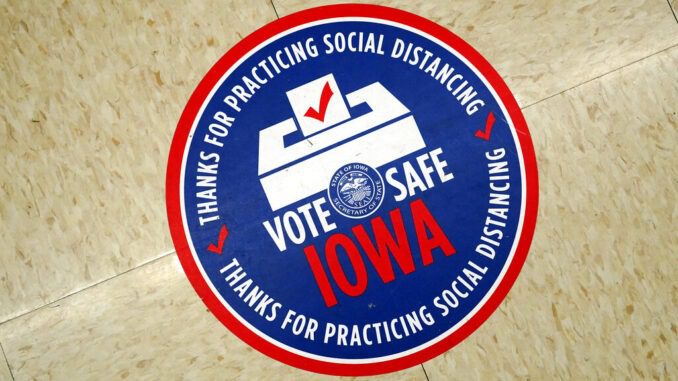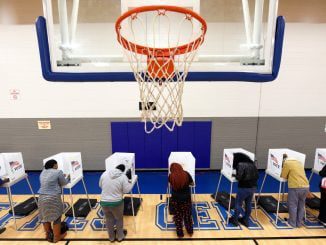
IOWA CITY, Iowa — Democrat Rita Hart is asking the U.S. House to investigate and overturn the race that Iowa says she lost by six votes, arguing that 22 ballots were wrongly excluded and others weren’t examined during the recount.
In a notice of contest released Tuesday, Hart argues that she would have netted 15 votes and defeated Congresswoman-elect Republican Mariannette Miller-Meeks had the 22 ballots been tallied in Iowa’s 2nd Congressional District.
Hart is asking the Democratic-led House to count those votes and conduct a uniform recount throughout the district’s 24 counties, saying she is confident she will be ahead after that process and declared the winner.
“Although it is admittedly tempting to close the curtain on the 2020 election cycle, prematurely ending this contest would disenfranchise Iowa voters and award the congressional seat to the candidate who received fewer lawful votes,” Hart lawyer Marc Elias writes in the 176-page notice, which includes affidavits from several voters who say their Hart votes were improperly rejected.
Iowa’s canvassing board certified Miller-Meeks as the winner by a vote margin of 196,964 to 196,958, the closest congressional race since 1984. Her victory would narrow the Democratic House majority, which is currently 222-211 with two races uncalled.
The certification followed a recount in which Hart nearly erased the 47-vote lead that Miller-Meeks held after the initial canvass. The lead had earlier flipped back and forth between the candidates after the discovery and correction of two major tabulation errors.
Hart announced earlier this month that she would not challenge the outcome in Iowa’s courts, saying state law would have required a contest to be decided within days and did not allow for adequate time to examine thousands of ballots.
Instead, she is filing her challenge under a 1969 law, the Federal Contested Elections Act, which will trigger an investigation by the House Administration Committee that could last months. To prevail, Hart must show by a preponderance of evidence that she got the most votes.
Republicans have reacted with outrage to Hart’s maneuver, saying she is bypassing a review by Iowa judges while attempting to have her fellow Democrats declare her the winner.
But Hart and her supporters have argued that every legal vote must be counted in a race so close.
“It is crucial to me to make sure that this bipartisan review by the U.S. House is fair,” she said. “Iowans deserve to know that the candidate who earned the most votes is seated.”
According to a 2010 report by the nonpartisan Congressional Research Service, the House reviewed 107 contested elections between 1933 and 2009 and seated the candidate the state had certified as the winner in the overwhelming majority of cases.
The report says the House declared the challenger the winner in at least three cases, most recently after a 1984 Indiana race in which majority Democrats overturned the state outcome and ruled that incumbent Democrat Frank McCloskey won by four votes.
During the process, candidates can take sworn depositions and subpoena witnesses. The committee can impound ballots and voting records and does not have to follow state law about which votes are counted.
In her filing, Hart notes that 11 ballots weren’t counted because of mistakes by poll workers, including nine ballots discovered during the recount in Marion County and two curbside votes that weren’t put into a tabulation machine in Scott County.



